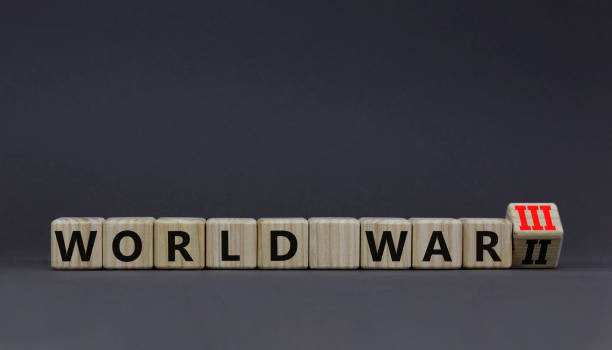
Vladimir Putin has sky-high presidential approval ratings among Russians (the envy, no doubt, of every Western chief executive). He recently triumphed at the Alaska summit, where he got President Donald Trump to back off of his demand for a cease fire in Ukraine. The Russian president’s participation at the 2025 China Victory Day parade further cemented Russo-Chinese relations, and he has been credited with a reproachment between China and India. So, why is at least one prominent analyst predicting Putin’s time is coming to an end?
It seems that, after all of these achievements, Putin’s handling of the Ukraine war is coming under growing criticism – not so much from the populace, but from elements within the Russian “thinking class.” They want an end to the conflict and the punishment and/or elimination of the Western-backed Volodymyr Zelensky regime.
Thus, Putin’s political exit has been predicted by American historian and longtime Russian affairs analyst Prof. Gilbert Doctorow, the author of War Diaries. Vol. 1: The Russian-Ukraine War, 2022-2023. Doctorow now believes that Putin’s slow, methodical war of attrition against Ukraine has taken too long and, if continued, could lead to the regional conflict spinning out of control and igniting a nuclear conflagration.
Doctorow has also criticized Putin’s lenient attitude toward the many Western provocations taken against Russia, with the latest talk of the U.S. supplying Tomahawk missiles to Ukraine, which could be fitted with nuclear warheads. The issuance of Tomahawks is on top of the massive aid – military, strategic, intelligence, and financial – that the West has provided without which Ukraine would completely collapse.
While Doctorow advises that Putin end the war as quickly as possible, it must be noted that the perspicacious Paul Craig Roberts has been one of the few, from almost the start of the war, who called for Putin to take decisive action to end what the Russians call a “special military operation.”
Roberts believes that the West is using the conflict as a means to ultimately collapse Russia, divide it politically, and plunder its resources. A fragmented Russia will provide no opposition to a unipolar world dominated by the United States.
In his latest article, Roberts asks:
Will he again be ‘Putin-the-Unready’ as he was in
South Ossetia in 2008, in Ukraine in 2014, in 2022
when Russia was forced to intervene in Donbas,
and when the Russian strategic bomber force was
attacked on June 1. *
In recent podcasts and essays, Doctorow has broken from most of the foreign policy analysts of the alternative media who continue to speak in positive terms of Putin’s deliberate, painstaking approach of slow attrition in Ukraine and his continuing leniency to hostile Western action toward Russia, with now demeaning talk from U.S. politicians including President Donald Trump that call Russia a “paper tiger.”
Doctorow believes that Putin’s reign has run its course:
I am suggesting that the era of Vladimir Putin is coming to
a close. . . . He no longer has the courage of his convictions,
that his threats meant to deter Western enemies are empty
verbiage. . . . He has pulled up the red lines
he clearly set out one year ago with respect to long range
missiles being supplied to Ukraine, and that he is drawing
out the war in Ukraine by not using . . . hypersonic missiles to
end the war now. **
Whether such a seemingly implausible scenario comes about or that Russia eventually attains its goals with Putin in charge, the West will continue to escalate. One bright spot, however, is that the current leadership of Europe’s most war-like states – Keir Starmer of Great Britain, Friedrich Merz of Germany and Emmanuel Macron of France – are widely unpopular and most likely do not have a long political shelf life. Hopefully, their respective replacements will focus on the monumental economic and social problems that confront each nation and the Ukraine war will be put on the back burner.
One theme sometimes heard by alternative media commentators is that the Russian economy has improved since the start of the special military operation. While Western sanctions have proved to be mostly ineffectual, wars are always a detriment to economic life except, of course, to the arms makers and their bought politicians.
The opportunity cost of producing guns, bullets, and missiles is the loss of the production of consumer goods – refrigerators, cars, computers, etc. While it might not be directly seen, Putin’s slow march through Ukraine is taking a toll on the Russian economy.
More important than the economic degradation of society is that the war is being fought between two largely white populations. The slaughter of whites will mean a decline in birth rates. This unspoken aspect of the war, no doubt, has always been a policy of the enemies of the Occidental peoples.
While a certain segment of the Russian political elite may want to replace Putin, the ultimate responsibility for the Ukraine war and (God forbid) a possible nuclear exchange is with the collective West, in particular the United States.
If President Trump really wanted to stop the killing, he merely has to cut off financial aid, end the considerable U.S. military and intelligence assistance to the Zelensky regime, and the war would be over in days.
If these ominous trends continue, it appears that only an act of Divine intervention can avoid a nuclear disaster.
*https://www.paulcraigroberts.org/2025/10/03/putin-the-unready/
**https://gilbertdoctorow.com/2025/10/04/conversation-with-professor-glenn-diesen-restoring-russias-deterrent-or-emboldening-nato/
Antonius Aquinas@antoniusaquinas




